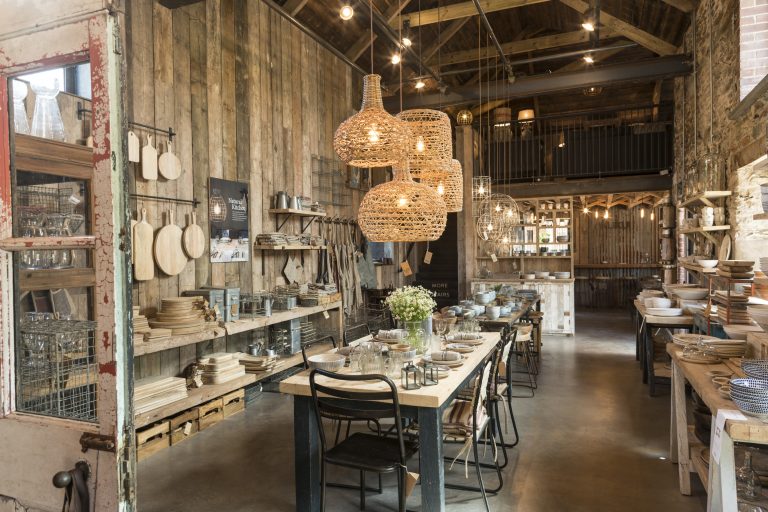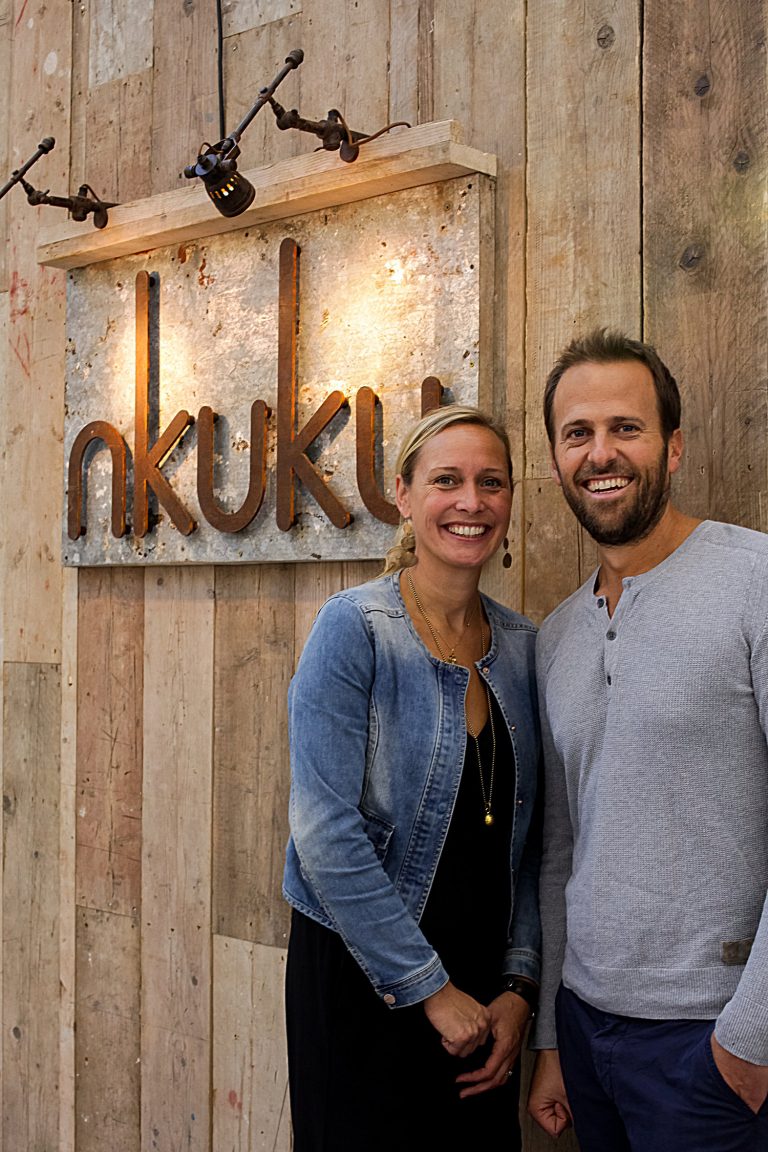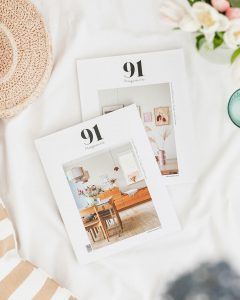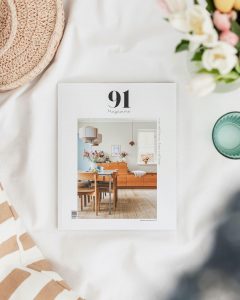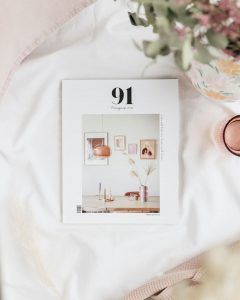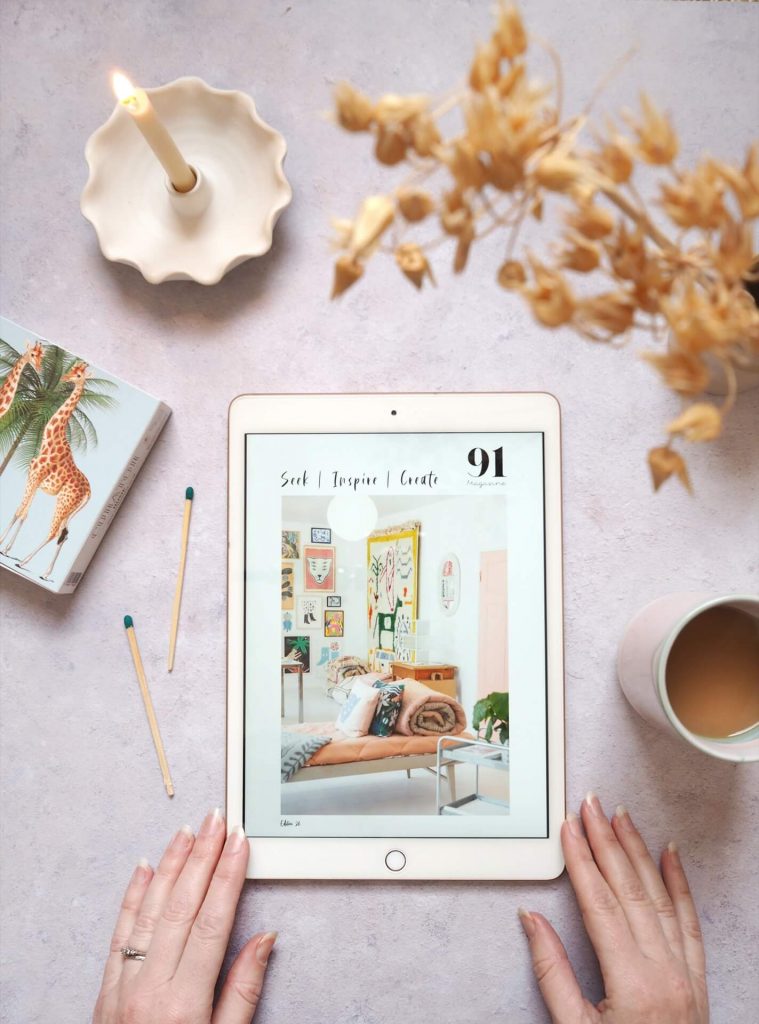How would you describe the essence of Nkuku?
Nkuku is about creating beautiful handmade home and lifestyle products. We work with artisans throughout the world, combining timeless design with traditional skills and natural materials.
Can you tell us some more about how Nkuku came about?
Nkuku came about from a round-the-world trip – leaving our jobs in corporate finance and interiors – we seized a chance to travel the world. A passion for culture and travel underpins the Nkuku brand, meeting artisans and learning about traditional skills specific to each country. We wanted to bring these skills to a wider audience whilst creating a sustainable business for ourselves. On our return we moved out of London to Devon and began working with artisans in India.
Initially, our office was in our bedroom, that later upgraded to a garage and finally an actual office space! We sold products at markets and county shows and finally attended trade fairs. All our products were stored in a hay loft, we picked and packed all our orders, often through the night to meet deadlines. We now have an amazing team with us, but our hands-on approach remains the same.
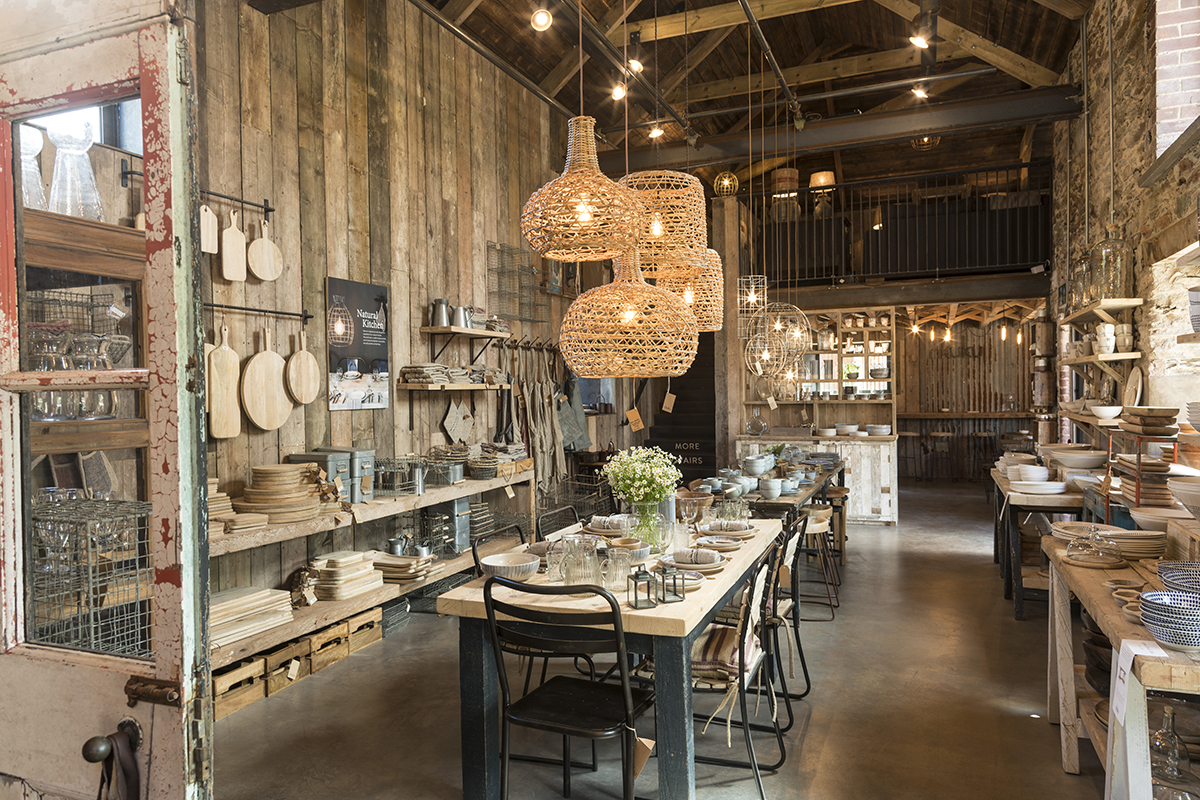
You recently opened a lifestyle store and cafe – how did you find the space, and what was your approach to designing the interior?
It was over three years ago that we first stumbled across a beautiful courtyard of stone barns, located just outside Totnes, Devon. The buildings were originally dedicated to farming and cattle and had been derelict for several years. Despite the exposure to the elements and neglect there was a certain magic to the space. Our first taste of the site was enough to inspire us and as we stood surrounded by decaying timber, rubble and a fair amount of cow muck we saw our first store coming to life.
We were keen to keep as many of the original features and stay true to the original building. In keeping with our Nkuku principles we wanted to restore rather than rebuild. This set about a number of research projects, searching for reclaimed materials and other suitable resources. There was also a fine balance to be found between look and practicalities. Maintaining these important details really make the building what it is today.
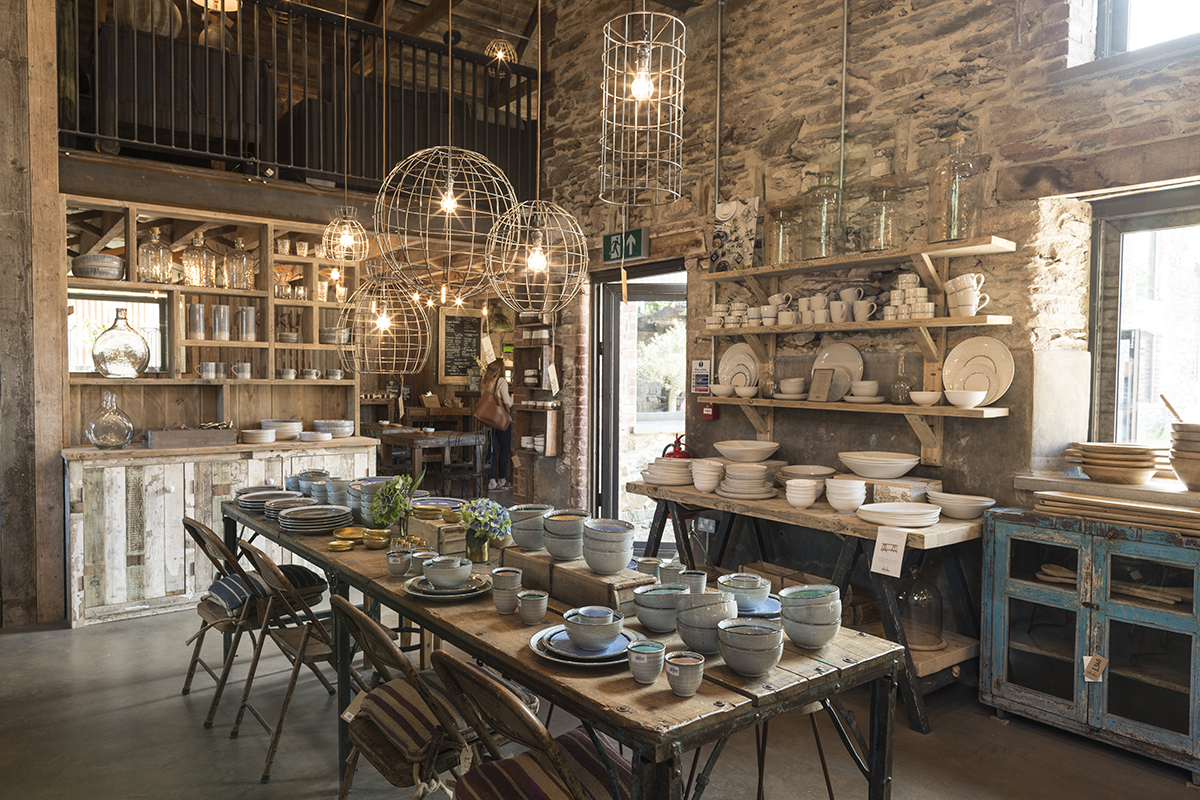
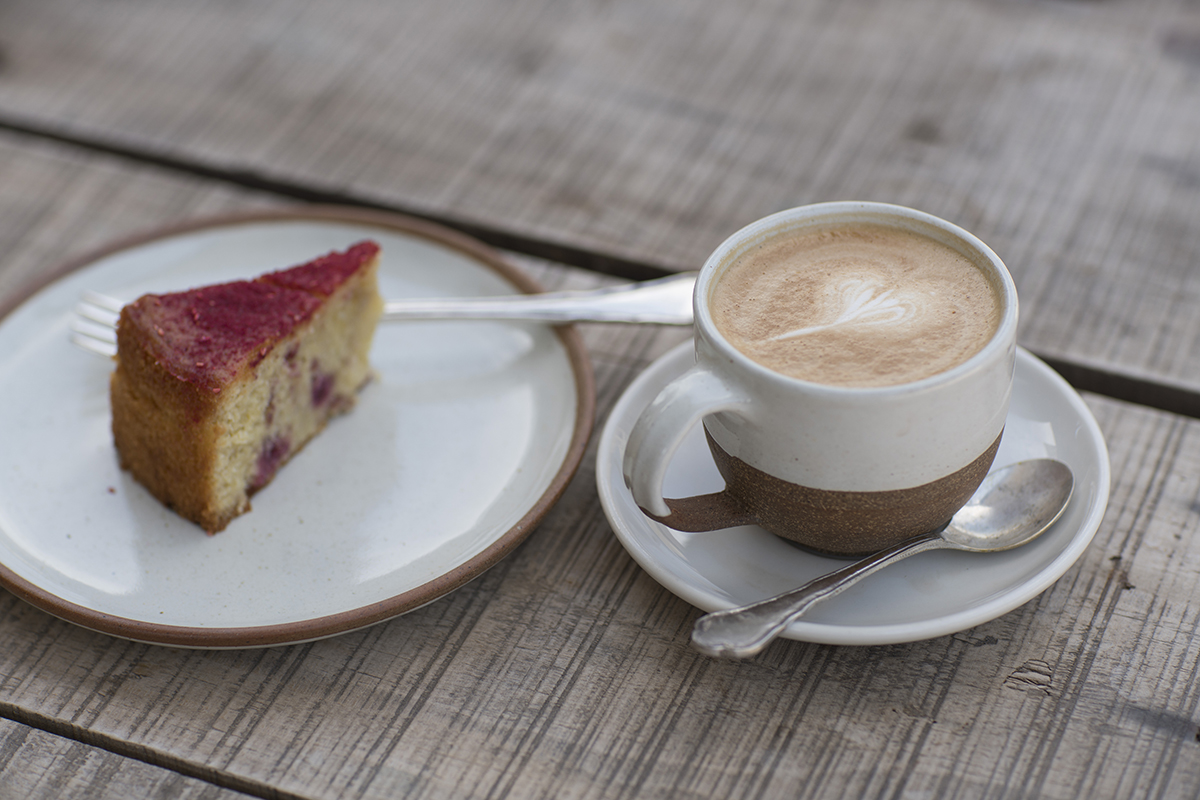
You have a strong ethical approach – how important is that to you and the business? How do you go about finding artisans to work with?
Our ethical approach is a key part of Nkuku. It’s the reason we decided to set up the business. Discovering beautiful products and working with artisans is core to Nkuku. We think ethical business is good business. Initially the artisans we met were people we met whilst travelling, this then caused a chain of introductions to other artisans and manufacturers. We are always on the lookout for new NGO’s, social projects and enterprising businesses. We now visit trade shows worldwide. Last year we took our family travelling around South East Asia and met some astounding potters. Wherever we go we are always looking, even our children can’t help but get involved.
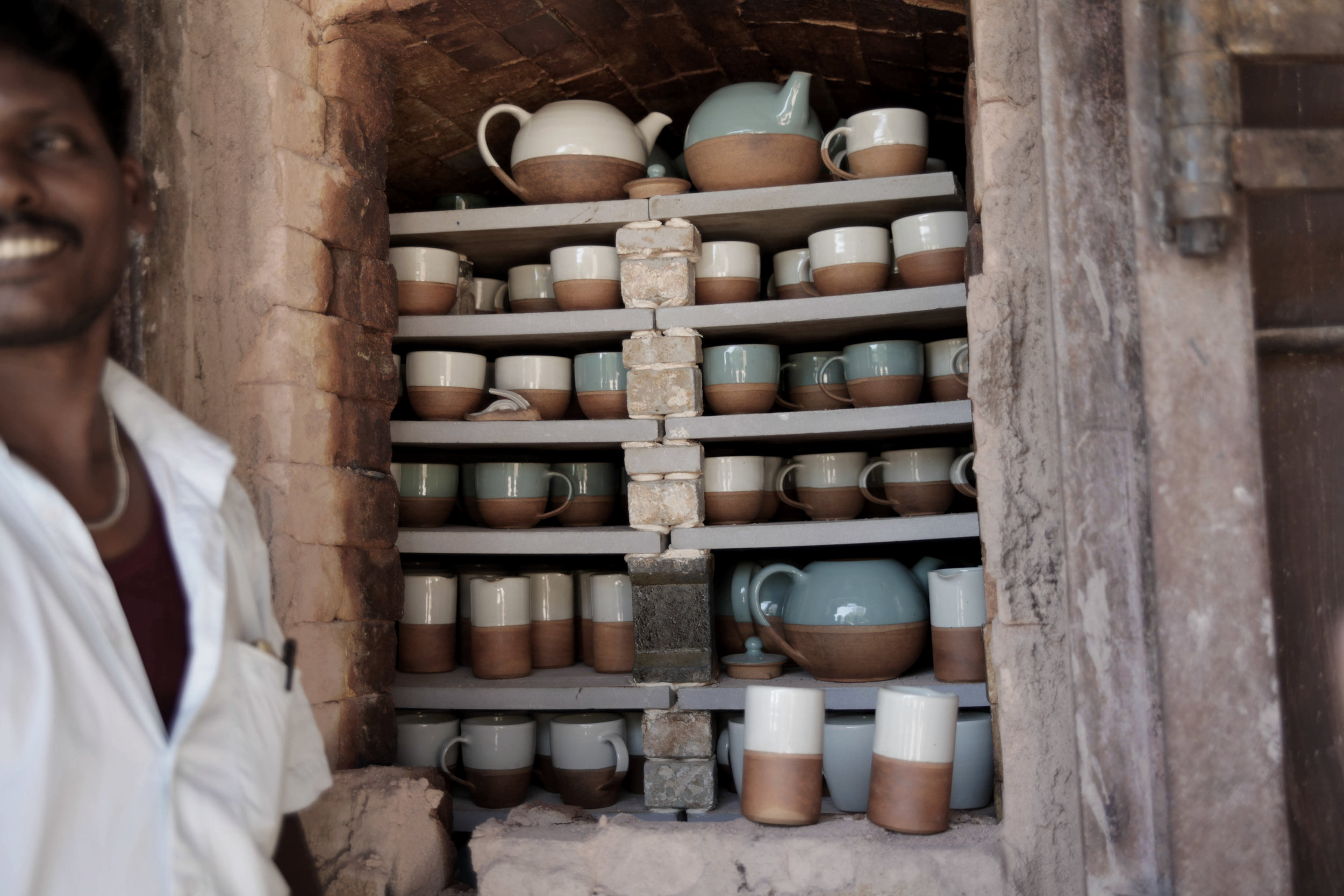
How do you approach the buying process?
We have key suppliers that we have worked with many years, and we enjoy developing products working with the materials we know they are experts in. We spend a lot of time planning and developing our collections with emails flying back and forth and trips out to India to confirm. It’s very rare that we find a product that we just want to stock, there is always a design change or what we hope an enhancement that makes the product better.
Can you tell us a bit more about the wholesale side of things – how do you go about finding stockists? Do you like to find people who share your ethical approach?
We have a great selection of stockists some of whom ordered with us at our very first trade show over 10 years ago. It’s always great when a stockist shares the Nkuku ethos. We hope, first and foremost, that they love the product, and then when they discover the story behind each piece it adds to the value and makes each item not a mass market item but an individual piece. The world is a much smaller place and we believe that our customers want to know how things are made and where they originate. At the end of the day our stockist want a product that sells well and gives pleasure to their customers, and that it was we are aiming for.
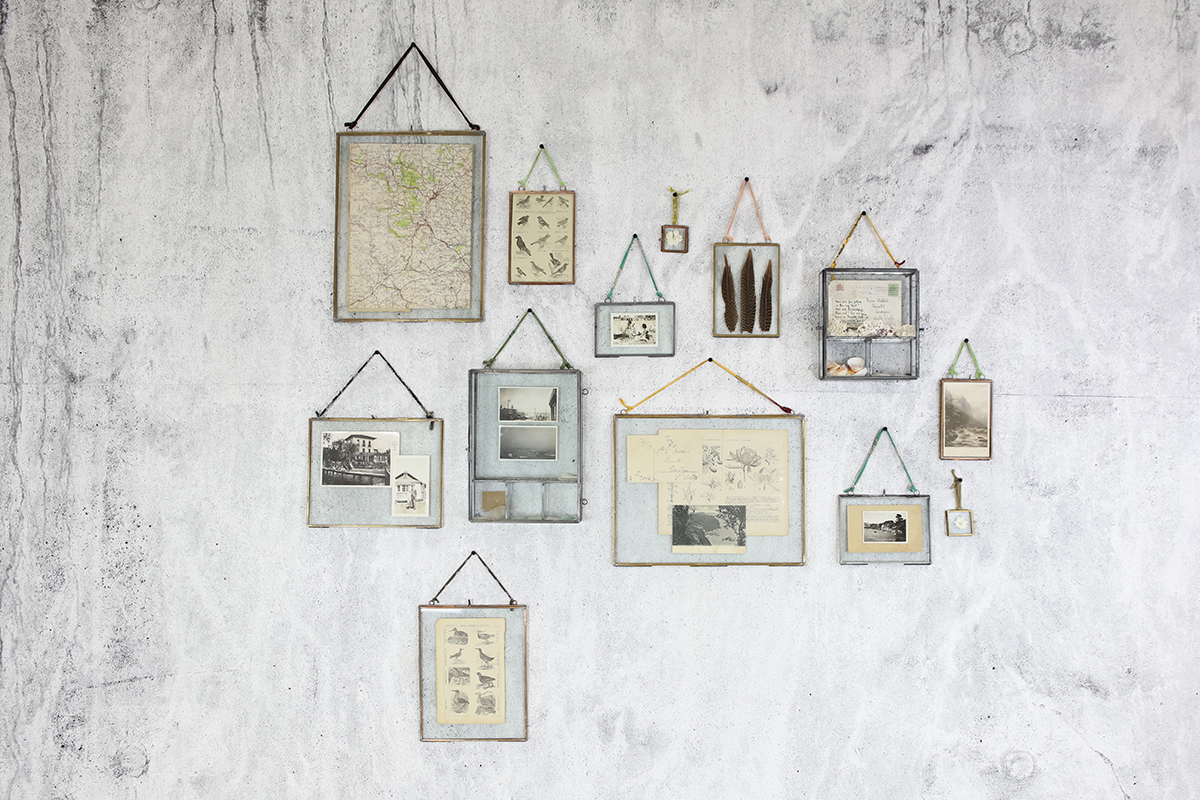
What are your current bestsellers, and do you have any personal favourites?
Our Kiko frames continue to be a bestseller, along with our collections of handmade tableware. We are all excited about the new autumn collection in particular the new Satara hand painted metal, Datia tableware and Ozari glassware.
To what extent are you influenced by trends in terms of your products?
We are not a fashion led brand and this is an important part of our ethos. We try to keep an independent and individual style that will stand the test of time. Good design, good quality and beautiful materials are our focus.
What are the challenges, and best parts of running Nkuku?
All businesses have challenges but we are lucky to have a great team and Devon is a wonderful place to live and work.
The handmade nature of products can throw up challenges, small kilns mean that only small batches of products can be completed at a time so we need to plan around this. The weather can throw a few curve balls too, the monsoon makes it particularly hard to dry products so we have to find ways to work collaboratively and find solutions. Finally, getting the pieces from A to B is a challenge in itself, often camel carts and brightly painted trucks are involved, not to mention the shipping and finally delivery to the customer.
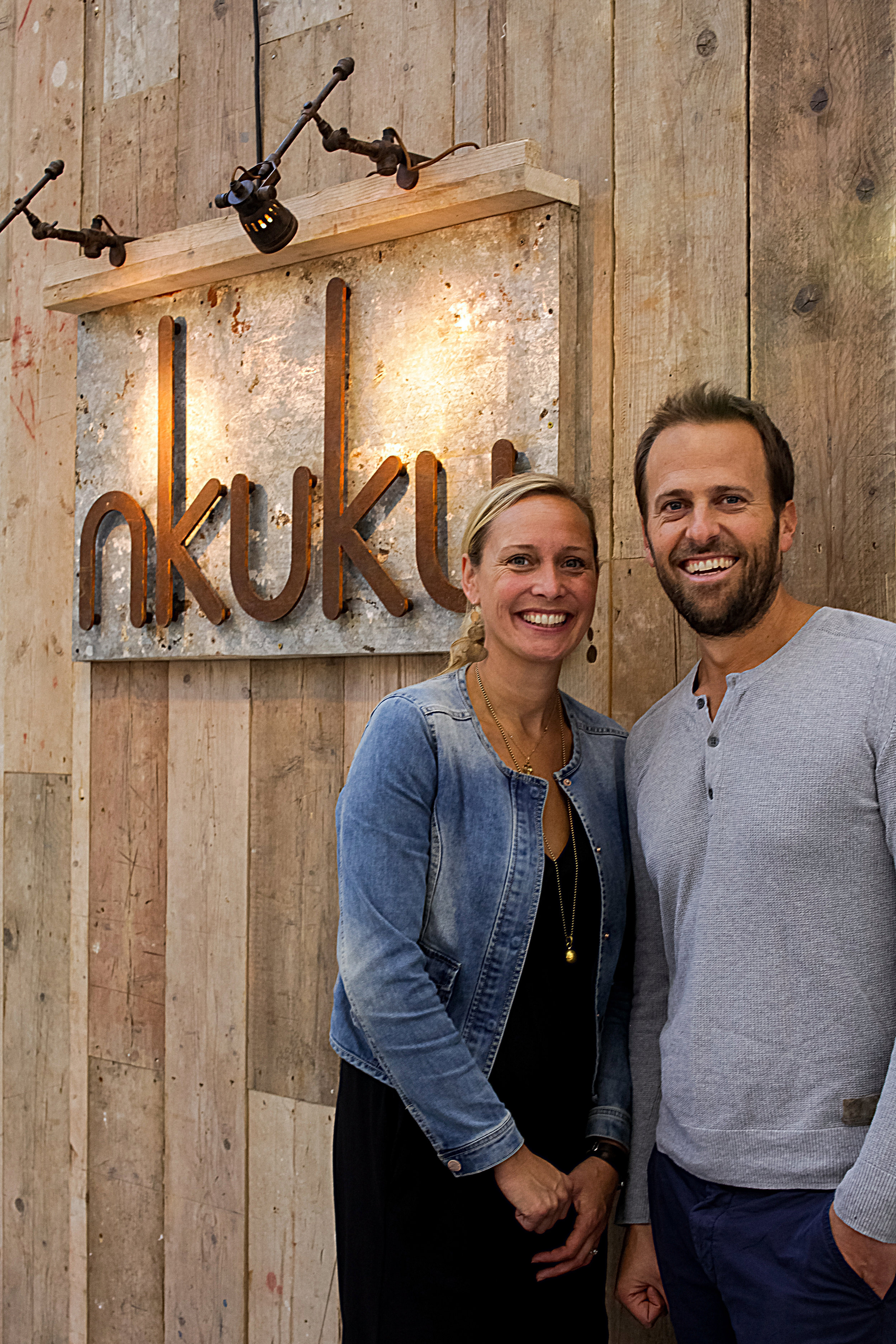
What are the key elements to running a successful interiors business?
Ultimately, I think it is a real love of the brand. We live, breath and sleep it. Sometimes it can be a negative too as you never step away because you care so much. We have a real love for interiors and creating products that bring pleasure to everyday life. Working with the right team is key, we have a really positive, ‘can-do’ team of people who care about the brand, our products and our customers.
Any advice for anyone aspiring to run their own business?
It’s a cliché but hard work really does pay off. You just have to believe in your own business. Don’t worry too much about what anyone else is doing and just stay true to your own ideas. Try and offer something unique in what you do and don’t be afraid to fail.
